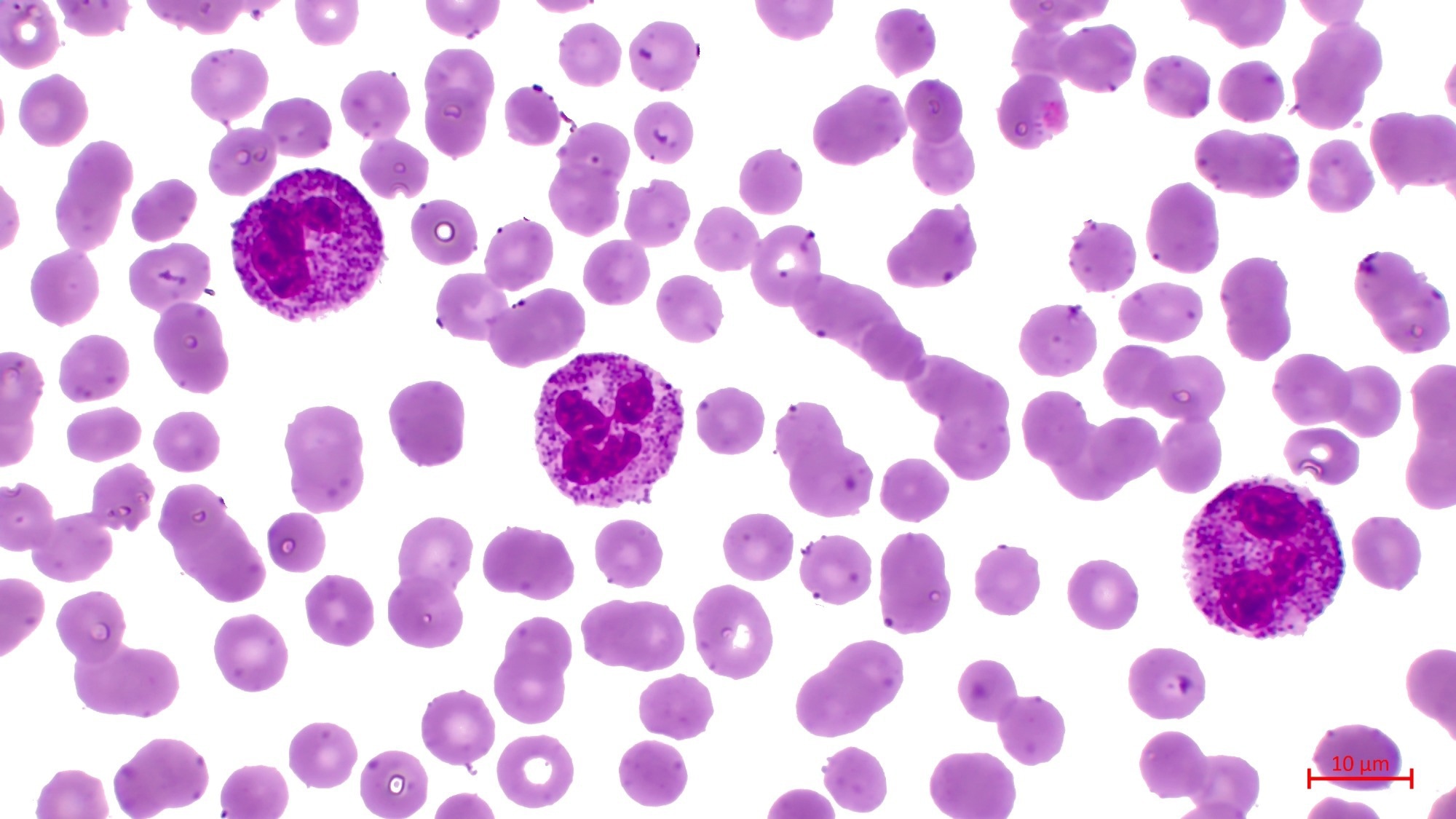Neutrophils: Unraveling their multifaceted roles in inflammatory bowel disease and gut microbiota
https://www.news-medical.net/news/20231227/Neutrophils-Unraveling-their-multifaceted-roles-in-inflammatory-bowel-disease-and-gut-microbiota-interactions.aspx?azosrc=downloadpdfcopyemail
By Vijay Kumar MalesuDec 27 2023Reviewed by Benedette Cuffari, M.Sc.
In a recent review published in the journal Nature Reviews Gastroenterology and Hepatology, researchers examine the multifaceted roles of neutrophils in inflammatory bowel disease (IBD) and highlight their interactions with the gut microbiota.
 Study: Neutrophils: from IBD to the gut microbiota. Image Credit: BioFoto / Shutterstock.com Study: Neutrophils: from IBD to the gut microbiota. Image Credit: BioFoto / Shutterstock.com
Background
IBD, which comprises Crohn's disease and ulcerative colitis, arises from genetic, microbial, and environmental factors. IBD often originates with loss-of-function mutations, which lead to reduced innate immune responses, suppression of microbiota control, secondary inflammation, and tissue damage.
Neutrophils, vital in innate immunity, are key in IBD, especially Crohn's disease; however, these inflammatory cells have been less studied than other immune cells like T-cells. Thus, further research is needed to fully understand the complex roles of neutrophils in IBD and their interactions with the gut microbiota.
Neutrophil diversity and plasticity
Contrary to previous beliefs that neutrophils are homogenous, recent studies have revealed their remarkable heterogeneity and adaptability in both health and disease. This complexity is especially apparent in IBD, where neutrophils have diverse phenotypes and functions. These discoveries challenge the traditional view of neutrophils as simple antimicrobial cells, thus highlighting their roles in modulating immune responses and interacting with the microbiota.
Recent advancements have led to the identification of several neutrophil subtypes, including low-density neutrophils (LDNs), normal-density neutrophils (NDNs), and tumor-associated neutrophils (TANs). However, the precise functional differences among these subtypes remain unclear. Additionally, neutrophils' distinct activation and maturation states and how they respond to local tissue environments add another layer to their complexity.
Dual roles of neutrophils in IBD
In IBD, neutrophils are crucial for intestinal barrier defense but also contribute to chronic inflammation and tissue damage. While essential for combating pathogens, the recruitment of neutrophils to the intestinal mucosa can lead to epithelial barrier disruption and exacerbate inflammation.
 Genetics & Genomics - Second Edition eBook NEW EDITION NOW OUT - Compilation of the top interviews, articles, and news in the last year.Download the latest edition Genetics & Genomics - Second Edition eBook NEW EDITION NOW OUT - Compilation of the top interviews, articles, and news in the last year.Download the latest edition
Neutrophils amplify immune responses by releasing reactive oxygen species (ROS), cytotoxic granules, and neutrophil extracellular traps (NETs). These actions, while antimicrobial, can cause significant mucosal damage. Conversely, certain neutrophil subsets play a protective role in IBD by aiding in tissue repair and inflammation resolution.
The contribution of neutrophils to IBD varies among patients and is influenced by genetic predispositions and local environmental factors. Understanding these influences is key to developing targeted therapies that modulate neutrophil functions without compromising their essential roles.
Neutrophils, microbiota, and IBD
Over 350 IBD susceptibility genes are linked to neutrophil functions, thus emphasizing the importance of these cells in disease development, particularly at the host-microorganism interface. These genetic factors influence neutrophil behavior and microbiota composition, which underscores the complex dynamics of microbiota-neutrophil interactions in IBD.
Understanding the intricate relationship between neutrophils, the gut microbiota, and IBD is crucial for developing new therapeutic strategies. By targeting this interplay, it may be possible to address the unmet medical needs in IBD treatment by offering more effective and personalized approaches.
Neutrophils play a pivotal role in maintaining intestinal homeostasis by balancing the gut microbiota, encapsulating commensal microorganisms during inflammation, and controlling microbial populations. The recruitment of neutrophils to the intestinal mucosa, which relies on chemotaxis receptors like C-X-C motif chemokine receptor 2 (CXCR2) and cytokines like interleukin 17 (IL-17) is vital for this balance. Notably, neutrophils produce IL-22, thus reinforcing their role in bacterial containment and supporting epithelial restoration during colitis.
Chronic neutrophil infiltration during prolonged inflammation can significantly alter the intestinal environment. Their release of ROS creates a favorable milieu for pathobionts like Enterobacteriaceae species.
Neutrophils' granules release antimicrobial peptides (AMPs) that interact with the microbiota by altering local immunity and influencing microbiota composition. These mechanisms form part of the body's 'nutritional immunity,' in which neutrophils regulate the bioavailability of essential micronutrients to manipulate the growth of different bacterial species.
Regulation of neutrophil functions by microbiota
Under normal conditions, the microbiota exerts a significant influence on neutrophil functions, thus affecting their development, recruitment, activation, and maturation. This relationship becomes evident in inflammatory conditions like IBD, where direct interactions between microbiota and immune cells are intensified.
The microbiota has a direct impact on neutrophil production in bone marrow. Factors derived from the microbiota, including ligands of toll-like receptors (TLRs) and nucleotide-binding oligomerization domain-containing proteins (NODs), travel from the gut to the bone marrow, thereby influencing myelopoiesis. This gut–bone marrow axis demonstrates the integral role of microbiota in regulating immune cell production.
The microbiota also influences neutrophil activation and maturation. In various experimental models, alterations in microbial diversity have been shown to impact neutrophil recruitment and response.
For example, neutrophils can selectively respond to different bacterial lipopolysaccharides (LPS), which affects their NETosis process. Additionally, probiotics like Lactobacillus rhamnosus strain GG have been found to inhibit neutrophil activation, thus demonstrating the potential of microbiota-derived factors to modulate neutrophil functions.
Short-chain fatty acids (SCFAs), such as propionate, acetate, and butyrate, play a significant role in influencing immune responses, including those of neutrophils. These metabolites impact neutrophil apoptosis, ROS production, and phagocytic activity. Other microbiota-derived metabolites, including bile acids and tryptophan catabolites, also modulate the intestinal environment, which indirectly affects neutrophil recruitment and activation.
Journal reference:
- Danne, C., Skerniskyte, J., & Marteyn, B. (2023). Neutrophils: from IBD to the gut microbiota. Nature Reviews Gastroenterology & Hepatology. doi:10.1038/s41575-023-00871-3
|